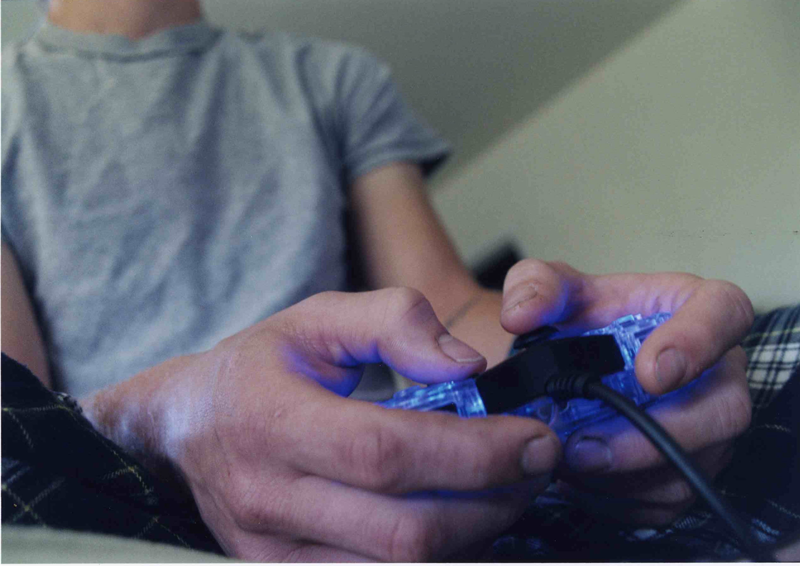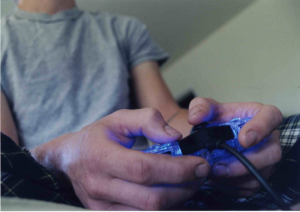By Jennifer Colbourne (The Cascade)– Email
Print Edition: September 25, 2013
Gamers for years have liked to think they have developed special skills, and a study is showing this actually may be true – unfortunately, these skills are only useful if you’re walking backward.
In an experiment conducted by psychologists at the University of Leicester, two groups were given a motion detector test. One group consisted of 16 action video gamers who played more than 10 hours a week, and 16 other participants who played less than one hour a week. The test consisted of 400 dots moving on a grey background, and the participants were to detect various movements, such as movement upward or inward.
Both groups did equally well at detecting motion, with the one exception for the gamers of “contracting radial motion,” which is the effect you get when moving backwards (the motion of the background shrinking into the distance).
In the press release for the research article, entitled “Selectively enhanced motion perception in core video gamers,” researcher Dr. Claire Hutchinson states, “Our study suggests playing a lot of action video games does not really have much effect on motion perception.
“I probably would have expected people who play a lot of games to do better at these tests – but if you think about it, when you walk and drive a car you experience the same movements in daily life.”
The researchers believe that the improvement in radial contraction perception developed in devoted gamers because games often require moving backward, either for a better view or for fighting. However, in the real world, people usually don’t walk backward (and it’s especially not recommended for fighting!)
Even though this particular ability may have limited use in everyday life, this study still indicates that video games do have cognitive value; as Dr. Hutchinson states, “The fact that gamers were significantly better at radial contraction does show that games to have the ability to train your visual system. The next step will be to look at the effect of other games.”
Another study from McMaster University in 2011 found that video games can improve eyesight.
Adults with bilateral deprivation amblyopia played 40 hours of an action game (Medal of Honor), and it was found that their visual perception actually improved – a major finding, since it was previously thought there could be no adult recovery from deprivation amblyopia.
Typically, studies have been focused on video games and their potential negative effects. A lot of research has been done on the correlation between violence and video games, and just recently another connection has been made between playing video games and engaging in behaviour risky to health (Kastenmüller, A., Fischer, P., & Fischer, J. “Video Racing Games Increase Actual Health-Related Risk-Taking Behavior”). In the wake of Grand Theft Auto V’s release, it’s encouraging to see more than just negativity connected with video games. Then again, perhaps the abilities to walk backward and improved eyesight aren’t the best if violent sociopath gamers go on a shooting rampage.
But in all honesty, though there is a connection between violence and gaming, there’s still a question of whether violent people are attracted to violent video games, or violent video games make violent people. At the end of the day, people don’t actually play video games for self-improvement, nor do they avoid games for fear of becoming violent – gamers play purely for entertainment. But it’s fascinating to see the new uses that can be found for this relatively new platform.



